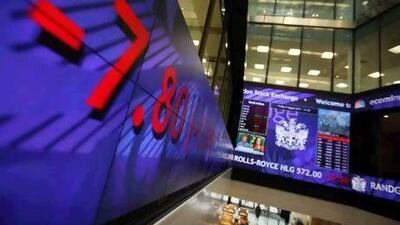Get ready for another roller-coaster ride. As the end of the year approaches, economists and analysts have begun putting together forecasts for the year ahead.
Are you the strongest link?
Business Quiz 2011 Do you have your finger on the pulse of business? Take our online contest for your chance to win brunch for two. Take the quiz
And many, it seems, are predicting more of what we saw this year: a gradual but uncertain economic recovery coupled with nervous markets and continuing stress for banks.
Similar themes are playing out globally, including the Middle East, which has been buffeted this year by the euro-zone debt crisis and the wave of unrest dubbed the Arab Spring. Many analysts expect the Middle East - and particularly the Gulf - to fare relatively well thanks to still-high oil prices, but few say it will be smooth sailing.
"I think the region will be quite resilient, but it's not going to be a great year," said Jaap Meijer, the head of banks research at HC Securities in Dubai.
For the UAE, concern centres on banking-system stress, slowing development activity in Abu Dhabi and large amounts of Dubai debt maturing next year.
Local banks are still contending with large numbers of bad loans. According to Central Bank figures, the UAE's banks booked Dh7.6 billion (US$2.06bn) of provisions for soured loans in the first 10 months of the year. That added to already-high levels of provisioning that started during the financial crisis in 2008 and continued through last year.
Spending on government-backed projects in Abu Dhabi, meanwhile, has slowed somewhat, according to a report this month from Fitch Ratings, a major global credit ratings agency.
That could have repercussions for construction companies, contractors and the banks that finance such activity, presenting "new headwinds" for the financial sector next year, Fitch said.
Analysts also see a potential for further debt woes in Dubai next year, even after the emirate successfully reorganised the finances of some of its biggest state-linked companies in response to the financial crisis.
The Dubai Government has denied that it intends to negotiate new terms on debt next year after finalising a $24.9bn restructuring at the government-owned conglomerate Dubai World this year.
That, however, has not halted speculation. Word of additional debt restructuring followed by the Government's denial "highlights more the potential ultimate reliance on sovereign support" next year to settle debts as they come due at government-owned and government-linked companies, Jean-Michel Saliba, an economist at Bank of America Merrill Lynch, said in a note this month.
Merrill estimates Dubai and its constellation of companies must repay or refinance $15.5bn of debt next year, a figure that is in line with numbers from the IMF and other analysts.
As the UAE and the rest of the Gulf prepare for another year of uncertainty, forecasters are casting an equally wary eye over the global financial and economic landscape.
While signs of an economic rebound emerged in the US in the latter part of the year - the country's unemployment rate fell to 8.6 per cent last month, its lowest point in more than two years - virtually no one is declaring an end to global financial turmoil.
End-of-year polls of economists have consistently shown pessimism overshadowing optimism, driven by declines in markets, Europe's continuing sovereign-debt crisis and projections of only moderate global GDP growth.
Some are even predicting troubled times for fast-growing emerging markets such as China and Brazil.
Clem Chambers, the chief executive of the UK-based financial-market information website ADVFN, is among many observers who foresee a weakening euro, surging gold prices and a major drop in British and US stock markets next year.
While major stock indexes in Germany, Italy and France took a dive this year, the US and UK came out relatively unscathed. That may change, however, Mr Chambers said in a recent note.
"There are three to five years of economic lumps and bumps to get through, and a US [and] UK stock market crash is likely to be one of those bumps," he wrote.
The Dow Jones Industrial Average, an index of large US companies, has climbed by about 6 per cent this year. The FTSE 100, the main UK stock index, has fallen by about the same amount but has performed much better than European peers such as Germany's DAX, which is off by about 15 per cent.
The lion's share of next year's challenges, however, centre on Europe, where leaders have promised to forge closer fiscal ties after spending hundreds of billions bailing out Greece and other troubled euro-zone countries amid forced austerity programmes that have prompted mass protests.
"The euro area continues to be a source of economic and financial instability for the rest of the world," Juan Pérez-Campanero, an economist at Spain's Banco Santander, said in a recent note.
twitter: Follow our breaking business news and retweet to your followers. Follow us

